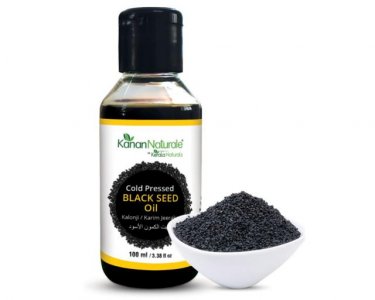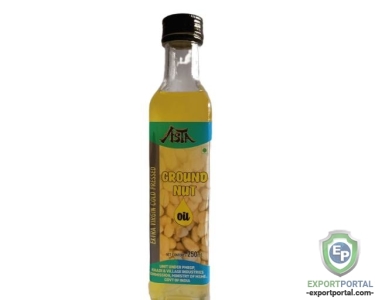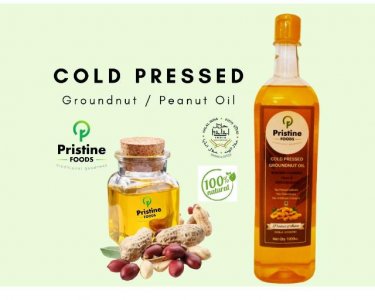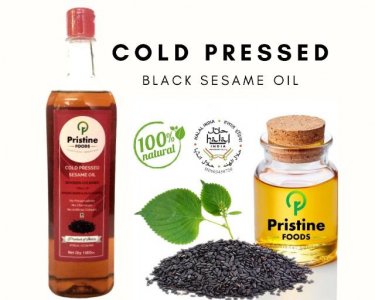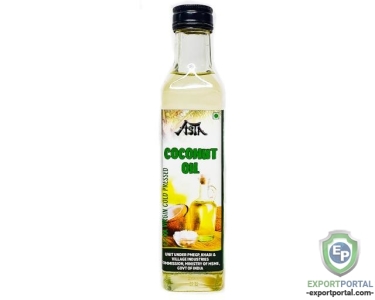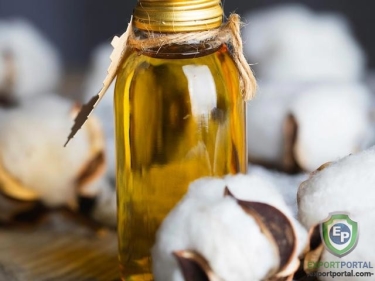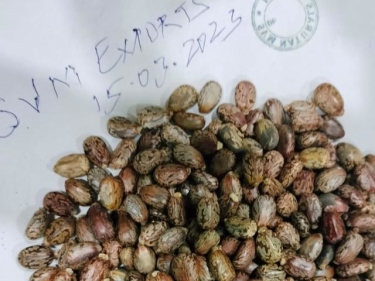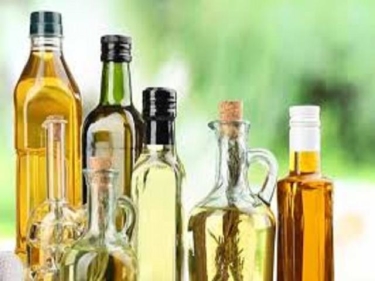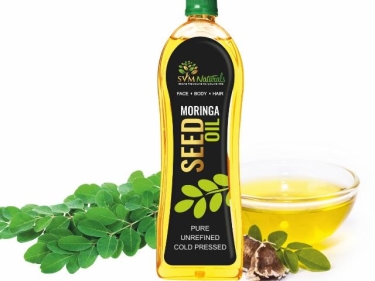Couldn't find the product you want?
Fill out this form to request the product.
Export from India
The economy of India is the 7th-largest economy by market exchange rates, India is one of the world's fastest-growing economies. The long-term growth prospective of the Indian economy is moderately positive due to its young population, corresponding low dependency ratio, healthy savings and investment rates, and increasing integration into the global economy.
India is one of the largest textile exporters. Major agricultural products include rice, wheat, oilseed, cotton, jute, tea, sugarcane, and potatoes. Major industries include telecommunications, chemicals, pharmaceuticals, biotechnology, food processing, steel, transport equipment, cement, mining, petroleum, machinery, and software. Major exports of India include petroleum products, textile goods, jewelry, software, engineering goods, chemicals, and leather manufactures.
The top export partners of India are the United States, the United Arab Emirates, China, Singapore and the United Kingdom. In recent years, India has become one of the biggest refined product exporters in Asia with petroleum accounting for around 20 percent of total exports.
The pharmaceutical industry in India is among the significant emerging markets for global pharma industry.
India has a growing automotive industry as well.
India's top exports are:
- Oil
- Gems, precious metals, coins
- Vehicles
- Machines, engines, pumps
- Organic chemicals
- Pharmaceuticals
- Cereals
- Iron and steel
- Clothing (not knit or crochet)
- Electronic equipment
Import to India
The Indian economy has the potential to become the world's 3rd-largest economy by the next decade, and one of the largest economies by mid-century. Historically, India has classified and tracked its economy and GDP as three sectors - agriculture, industry and services. Agriculture includes crops, horticulture, milk and animal husbandry, aquaculture, fishing, sericulture, aviculture, forestry and related activities. Industry includes various manufacturing sub-sectors. India's definition of services sector includes its construction, retail, software, IT, communications, hospitality, infrastructure operations, education, health care, banking and insurance, and many other economic activities.
India is a member of the Commonwealth of Nations,the South Asian Association for Regional Cooperation,the G20,the International Monetary Fund,the World Bank, the World Trade Organisation,the Asian Infrastructure Investment Bank,the United Nations and the New Development BRICS Bank.
India is heavily dependent on crude oil imports, with petroleum crude accounting for about 34 percent of the total inward shipments. India imports also gold and silver, machinery, electronic goods and pearls, precious stones and semi-precious stones and chemicals. The top import partners of India are China, Saudi Arabia, the United Arab Emirates, Switzerland and Iraq.
Shop our Fats and Oils!
Despite what many people believe, everyone needs to consume a certain amount of fats and oils on a daily basis to stay healthy. However, this does not mean you should eat any fatty foods. In fact, the type of fat you ingest is very important for your health as well. That's why Export Portal is here to make sure you consume only healthy oils. Take a look at our selection down below.
Oils are necessary in our diets since they contain essential fatty acids and help your body take in fat-soluble vitamins like vitamin A, D, E, and K. Moreover, they also play a big role in cooking by adding extra texture and flavor to our meals. That's why our online marketplace offers a great variety of cooking, vegetable, and seed oils, along with animal fats such as lard, duck fat, and ghee for our shoppers who love to cook. Make sure to check them out for the next time you plan on cooking yourself or a loved one a delicious meal!
But that's not all. Export Portal's Fats and Oils Section also offers sunflower oil, virgin coconut oil, palm acid oil, sesame oil, almond oil, cashew oil, walnut oil, etc., which are all supplied by global manufactures and suppliers. They are enriched with natural vitamins and free from impurities. Our raw virgin coconut oils are also made with no heat, high pressure, or chemicals to produce the purest form of coconut oil. All these products will provide good taste and nutrients to your food while gradually improving your health.
Shopping Made Simple with Export Portal
Export Portal's main goal is to make sure our shoppers can experience an enjoyable shopping experience at all times. That's why we are constantly working to provide only high-quality products on our site. Make sure to check them out while supplies last!
Customs requirements of India
Indian Customs Contact Information
Website: http://www.cbec.gov.in/
Email: jain.ajay@nic.in
Address: Custom House, near all India Radio, Navrangpura, Ahmedabad-380 009
Telephone: +91 27544630
India is a country situated in South Asia bordered by the Indian Ocean, the Arabian Sea, the Bay of Bengal, Pakistan, China, Nepal, Bhutan, Myanmar and Bangladesh. It is a member of the East Asia Summit, World Trade Organisation, International Monetary Fund, Asian Infrastructure Investment Bank and South Asian Association for Regional Cooperation (SAARC).
Import Procedure:
In case of Electronic Data Interchange no formal Bill of Entry is filed as it is generated in the computer system, but the importer is required to file a cargo declaration having prescribed particulars required for processing of the entry for customs clearance. In case of non-EDI more documents are also generally required.
Green Channel facility
Some major importers have been given the green channel clearance facility. They have to make a declaration in the declaration form at the time of filing of Bill of Entry. The appraisement is done as per normal procedure except that there would be no physical examination of the goods. Certain goods are prohibited under Foreign Trade.
The average customs duty is around 15%. Alcohol, wines, pet foods, some processed food products, and some manufactured goods are attracting higher customs tariff; however the tariff rate keeps on changing although the general trend is downwards. Some customs preferences are granted to certain goods imported, subject to conditions. You can consult a list on the website of the Ministry of Finance of India. Preferential rates also apply to imports from those countries with which India has signed special Trade Agreements.
Export Procedure:
For clearance of export goods, the exporter or his agents have to undertake the following formalities:-
Registration
The exporters have to obtain PAN based Business Identification Number (BIN) from the Directorate General of Foreign Trade prior to filing of shipping bill for clearance of export goods.
The exporters are also required to register authorised foreign exchange dealer code (through which export proceeds are expected to be realised) and open a current account in the designated bank for credit of any drawback incentive.
Whenever a new Airline, Shipping Line, Steamer Agent, port or airport comes into operation, they are required to be registered into the Customs System.
The exporters intending to export under the export promotion scheme need to get their licences/DEEC book etc, registered at the Customs Station.
Processing of Shipping Bill
In case of export by sea or air, the exporter must submit the 'Shipping Bill', and in case of export by road he must submit 'Bill of Export' in the prescribed form containing the prescribed details such as the name of the exporter, consignee, invoice number, details of packing, description of goods, quantity, FOB value, etc. Along with the Shipping Bill, other documents such as copy of packing list, invoices, export contract, letter of credit, etc. are also to be submitted.
Let Export Order
After the receipt of the goods in the dock, the exporter may contact the Customs Officer designated for the purpose and present the checklist with the endorsement of Port Authority and other declarations along with all original documents. Customs Officer may verify the quantity of the goods actually received and thereafter mark the Electronic Shipping Bill and also hand over all original documents to the Dock Appraiser, who may assign a customs officer for the examination of the goods. If the Dock Appraiser is satisfied that the particulars entered in the system conform to the description given in the original documents, he may proceed to allow "let export" for the shipment.
Product certification, labelling and packaging
Labelling
Outer containers should bear consignee and port mark and be numbered (to accord with packing list) unless their contents can be otherwise readily identified. Gross weight must be shown on two faces.
Packaging
Packing should be strong and should guard against extreme heat and humidity in summer and possible storage in the open and pilferage. Steel strapping is recommended.
Special certificates
Livestock imports must be accompanied by a sanitary certificate issued and certified by an approved authority in the country of origin.
Plants, plant products and leaf tobacco require phytosanitary certificates issued by an approved authority in the country of origin and certified by an approved organisation.
Additionally, leaf tobacco must be accompanied by a special certificate stating that the tobacco is free from ephestia elutella or that the pest does not exist in the country of origin. Any shipment of tobacco leaf arriving without the above certificate will be examined by an Indian Government inspector and a fee charged.
Used clothing requires a certificate of fumigation issued by an approved authority in the country of origin.
Port wine requires a certificate indicating alcoholic content and spirits may need a certificate of maturity.
Documents for import/export:
Commercial invoice
A minimum of 4 copies is required and must be signed by the supplier in exporting country. The invoice must show details such as:
- country of origin
- consignee's name
- number and date of letter of credit and import licence number
- terms of payment
- name of carrier
- number
- description and identifying marks of outer containers
Insurance
Bill of lading
Minimum of two copies normally required. To Order bills are also acceptable.
Freight charges must be stated separately and quantities must be indicated in metric terms.
Import reference number and letter of credit number are to be shown.
Must indicate the name and address of the applicant and the issuing bank.
Packing list
Certificate of origin
Issued by local Chamber of Commerce (three copies normally required).
Sources:
http://www.dov.gov.in/newsite3/clearance_procedure.asp
http://howtoexportimport.com/Export-customs-clearance-procedures-and-formalitie-146.aspx
http://www.quantaco.com/download/Bonnici%20India%20PRESENTATION.pdf
